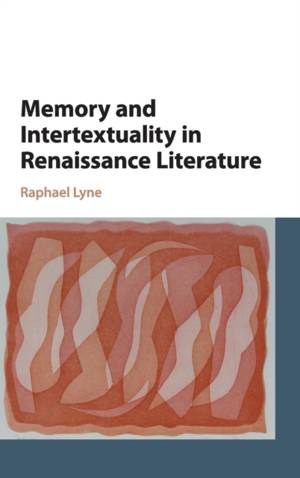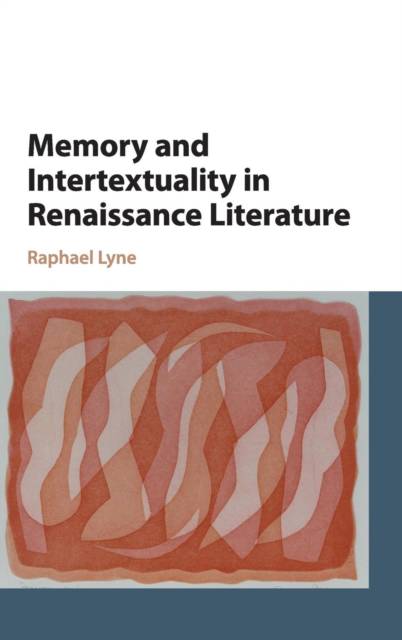
Je cadeautjes zeker op tijd in huis hebben voor de feestdagen? Kom langs in onze winkels en vind het perfecte geschenk!
- Afhalen na 1 uur in een winkel met voorraad
- Gratis thuislevering in België vanaf € 30
- Ruim aanbod met 7 miljoen producten
Je cadeautjes zeker op tijd in huis hebben voor de feestdagen? Kom langs in onze winkels en vind het perfecte geschenk!
- Afhalen na 1 uur in een winkel met voorraad
- Gratis thuislevering in België vanaf € 30
- Ruim aanbod met 7 miljoen producten
Zoeken
€ 183,45
+ 366 punten
Uitvoering
Omschrijving
This book uses theories of memory derived from cognitive science to offer new ways of understanding how literary works remember other literary works. Using terms derived from psychology - implicit and explicit memory, interference and forgetting - Raphael Lyne shows how works by Renaissance writers such as Wyatt, Shakespeare, Jonson, and Milton interact with their sources. The poems and plays in question are themselves sources of insight into the workings of memory, sharing and anticipating some scientific categories in the process of their thinking. Lyne proposes a way forward for cognitive approaches to literature, in which both experiments and texts are valued as contributors to interdisciplinary questions. His book will interest researchers and upper-level students of renaissance literature and drama, Shakespeare studies, memory studies, and classical reception.
Specificaties
Betrokkenen
- Auteur(s):
- Uitgeverij:
Inhoud
- Aantal bladzijden:
- 272
- Taal:
- Engels
Eigenschappen
- Productcode (EAN):
- 9781107083448
- Verschijningsdatum:
- 9/02/2016
- Uitvoering:
- Hardcover
- Formaat:
- Genaaid
- Afmetingen:
- 159 mm x 237 mm
- Gewicht:
- 508 g

Alleen bij Standaard Boekhandel
+ 366 punten op je klantenkaart van Standaard Boekhandel
Beoordelingen
We publiceren alleen reviews die voldoen aan de voorwaarden voor reviews. Bekijk onze voorwaarden voor reviews.









